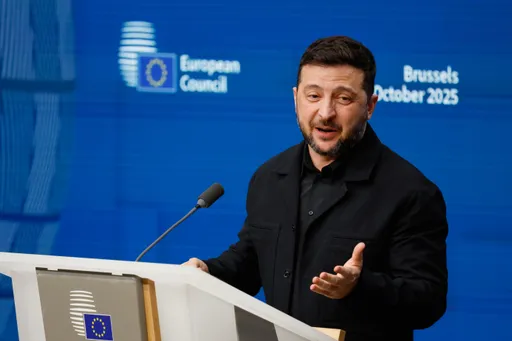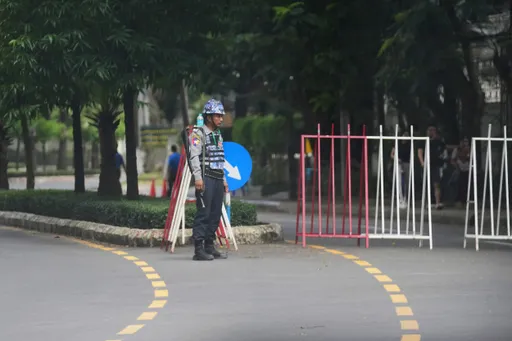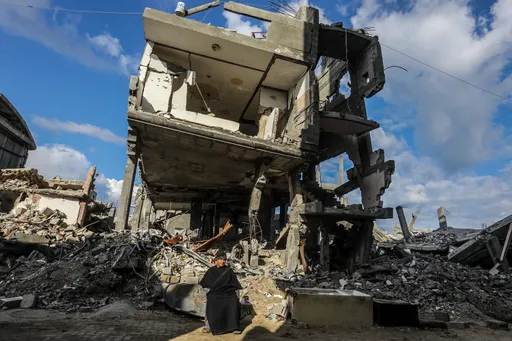The US State Department said on Wednesday it had designated Ismail Haniyeh, leader of the Palestinian group Hamas, as a terrorist.
The State Department said in a statement that Haniyeh, along with two groups active in Egypt and one in the Palestinian territories, were listed as specially designated global terrorists.
Palestinian group Hamas was designated as a terrorist group by the US in 1997. Ismail Haniyeh has been one of its active figures since then. And in May 2017, he was elected as the head of Hamas.
Why now?
The US’ statement designating Hamas’ political leader as a “terrorist” came after President Donald Trump’s decision last December to recognise Jerusalem as Israel’s capital, and to move the US embassy there—a move that violates UN resolutions.
Trump had promised to be “Israel’s best friend” as he took office in January 2017, and appointed his Jewish son-in-law and senior advisor Jared Kushner to broker peace between Israel and Palestine.
According to Ayse Karabat, an expert on the Israeli-Palestinian conflict and a journalist, Trump’s peace plan is a “pro-Israeli plan”.
“Israel can do anything that it wants and under these circumstances, they just want to try to put Hamas in short,” she said.
Palestine’s rival parties Fatah and Hamas have been moving towards unification, for the first time since the 2006 elections, which Hamas won, and which Fatah rejected. Fatah kept ruling the West Bank as Hamas took control of the Gaza strip, which has been the target of many Israeli attacks. Israel also recognises Hamas as a terrorist organisation.
Hamas and Fatah have been at loggerheads for the past eleven years, but since the recent reconciliation talks, the relationship has finally made a breakthrough.
First, Hamas announced a newly revised charter last May, which signalled a softening of its stance towards the Palestinian Liberation Organisation (PLO), which is dominated by its secularist rival Palestinian faction, Fatah.
A few days after the release of the new policy document, Ismail Haniyeh was elected as the new political chief of Hamas.
Under Haniyeh's leadership, Hamas then agreed to sign a reconciliation deal with Fatah, leaving the administration of the Gaza Strip to the Fatah-led Palestinian Unity Government, after 10 years of Hamas control. Haniyeh held talks with Fatah in Egypt, which is one of the biggest supporters of Fatah.
When Trump declared Jerusalem as Israel’s capital in December, both parties agreed that the US not only proved not to be an honest broker in the peace talks, but had also sabotaged the peace process it had introduced.
Now comes the Haniyeh decision.
“This will start a legitimacy discussion which will continue as long as Haniyeh is the leader of Hamas,” Karabat told TRT World.
“....any broker in this conflict has to deal with Hamas and its leader, and I think the US is planning to say to the world that he is on my terror list, how can you continue your relations with him.”
The previous leader of the group, Khaled Meshaal, was placed on the US terror list in 2003. Meshaal has been in self-exile in Qatar since 2012.
What does this mean for Haniyeh and Hamas?
The US already considered Hamas as a terrorist organisation, but that didn’t mean that its leader would also be on the US “global terrorist” list.
For Haniyeh to be put to the “terror list” will mean that there will be travel ban on him, limiting his movements and possible visits for any reconciliation talks.
If he has any financial assets in the US, they may also be frozen.
“It is to lock Haniyah's personal contacts or any diplomatic negotiations with any other officials... Normally, people are making a differentiation between Hamas' armed wing and the political wing," Karabat said.
But she said rather than undermining the group's leader and efforts, it would create the opposite impact within Hamas.
“I think Haniyeh’s position will be strengthened. Because it's an obvious blackmail, and I don't think it would lead Hamas in the short run to obey this blackmail,” she said.
Will the decision affect Palestinian unity?
After being at loggerheads for a long time, Hamas and Fatah sat at the negotiating table. They came up with the decision of reconciliation, with Egypt brokering the talks. Right after being elected, Haniyeh had paid a visit to Egypt. Cairo has also been the mediator between Fatah and Israel.
The US' decision may end up affecting Haniyeh’s relationship with Cairo.
“There were talks about the elections [in Palestine] for new representatives and it’s really a provocation attempt which might bring some negative results to the solution of the conflict and Palestinian unity,” Karabat says. “As long as Haniyeh is the leader of Hamas, Egypt will not deal with him.”
But for her, it doesn’t necessarily mean that the steps by Fatah and Hamas towards unity will be stopped.
“On the other hand, Palestinians are used to these kinds of provocations and attempts of dividing the Palestinians.”
























